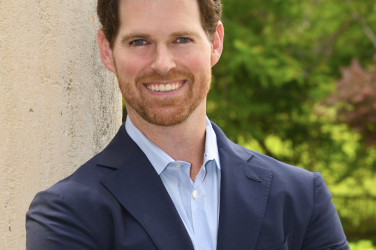
Q&A
General Surgeon
What kinds of advancements have you seen in your two decades as a surgeon?
Surgery has always had a glorious tradition of innovation and physicians who push the boundaries of the profession and advance the science. But advancements, over the past 20 years, are nothing short of miraculous. Operations that used to require large incisions and weeks of recovery are now done successfully through small, barely noticeable incisions. As communication and interconnectivity have advanced in every field, the availability and the expression of new ideas in medicine has changed the face of surgery forever. We’re no longer limited to a few textbooks but have unimaginatively vast resources of ideas. Surgeons around the world can talk to each other instantaneously and share their experiences and innovations. I can’t wait to witness the next 20 years of advancements.
Why are you such an advocate of robotic surgery?
Robotic surgery in its simplest sense is the marriage of the human brain and experience with today’s technological advances. Robotics allows our eyes to see with clarity and magnification anatomy that we could not previously see at all. Robotics allows our hands to move instruments with gentle precision in places where our hands could not previously reach. The benefits of this visualization and precision has proven to be fewer complications, less blood loss, less risk of infection, smaller scarring, less downtime for the patient, and markedly faster recovery.
I need reflux surgery. What results can I expect?
Imagine a time when you don’t have to live your life around heartburn. Imagine being able to enjoy a cup of coffee or share a meal with friends without having to worry about the misery to follow. Surgery can offer just that. Reflux and heartburn are often very fixable conditions. Reflux surgery has fantastic results allowing patients to stop taking antacids. There are several surgery options, all of which include fast recovery and resolution of heartburn symptoms. Get ready to enjoy food again!
What is the recovery time after surgery?
That will greatly depend on the surgery you have. However, a reasonable expectation after most minimally invasive procedures, would be major recovery between three to five days with full recovery in four to six weeks. That’s remarkably better than it used to be.
Will I have a surgery scar?
Even with all our advancements, scar-less surgery isn’t yet possible. Most, if not all, operations require an incision that needs to heal. The good news is that, with modern technology, scars are becoming fewer and much, much smaller every day. Additional technologies can help incisions fade to the point where they’re nearly invisible.
What’s the most important piece of advice you can give to a patient before they see a surgeon?
Take your time. Do your research. People spend more time reading reviews for products on Amazon or restaurant reviews than they do vetting a surgeon. Go to your initial consultation with a prepared list of questions. If you don’t understand the answer, ask until you do. Remember you’re the customer.
About The Expert

Gary K. Alexander, MD, FACS
Surgical Associates of Mansfield
After years as a board-certified general surgeon, Dr. Gary Alexander is still fascinated by the human body and its ability to repair itself. Trained extensively in all applications of the da Vinci robotic-surgical platform, Dr. Alexander emphasizes patient education and empowerment, partnering with his patients to find the least invasive viable treatment options.
Texas law prohibits hospitals from practicing medicine. This practice is owned and operated by MedHealth/Methodist Medical Group and staffed by independently practicing physicians who are employees of MedHealth/Methodist Medical Group. The physicians and staff who provide services at this site are not employees or agents of Methodist Health System or any of its affiliated hospitals. The contents of this article are for informational purposes only and are not intended to be a substitute for professional medical advice, diagnosis, or treatment. Always consult with your physician or other health care provider regarding any medical conditions or decisions about medical care.










